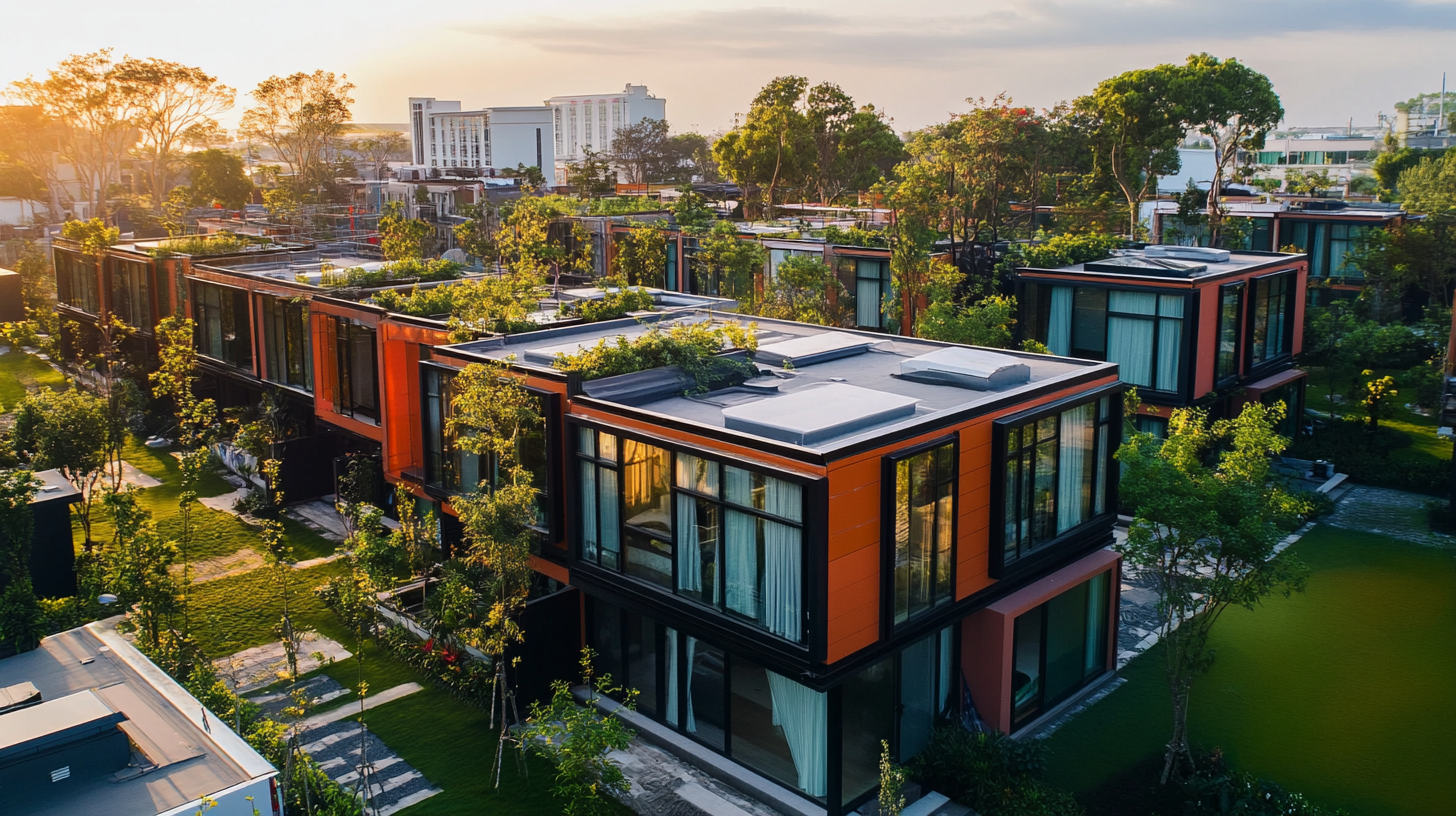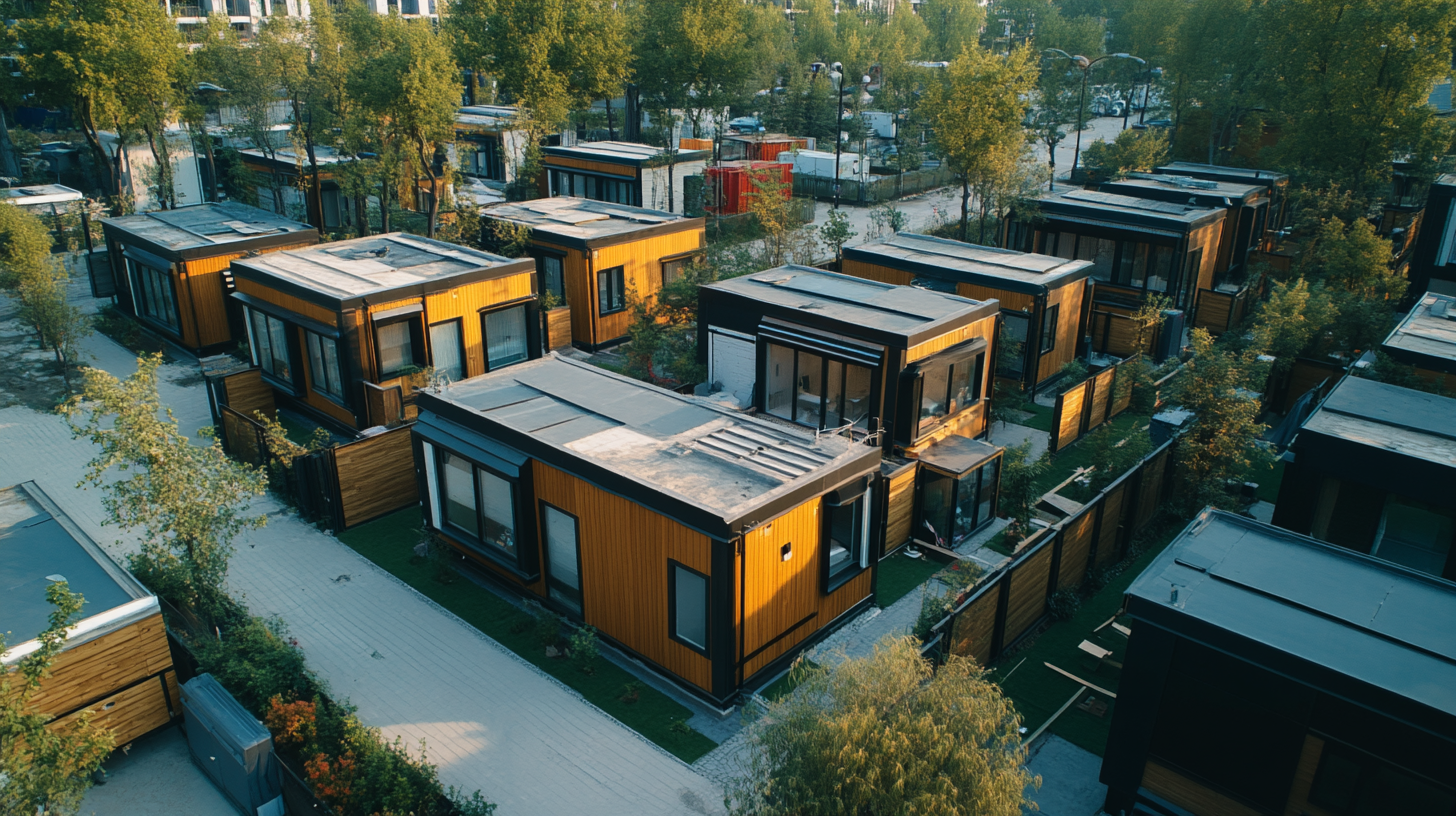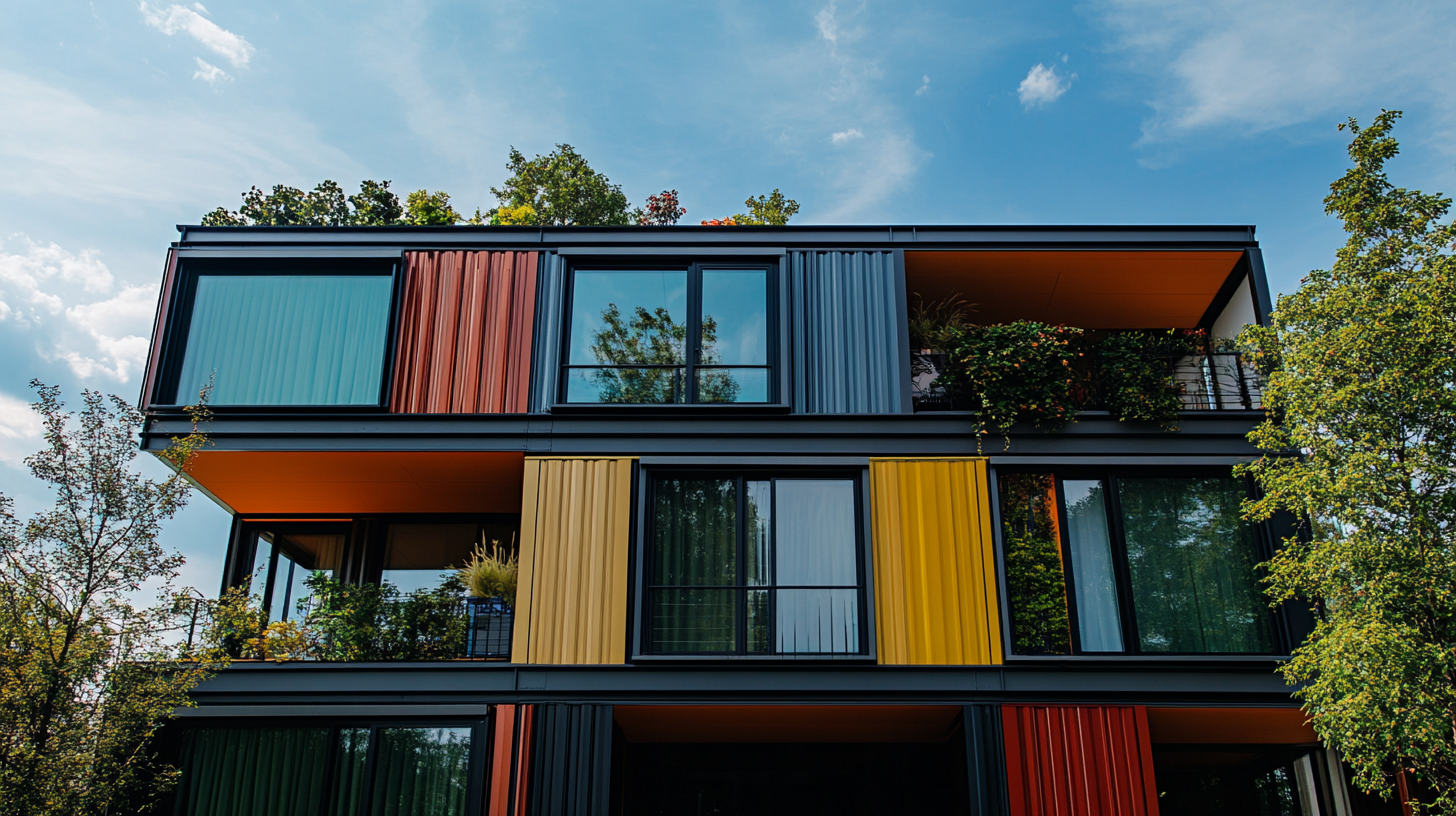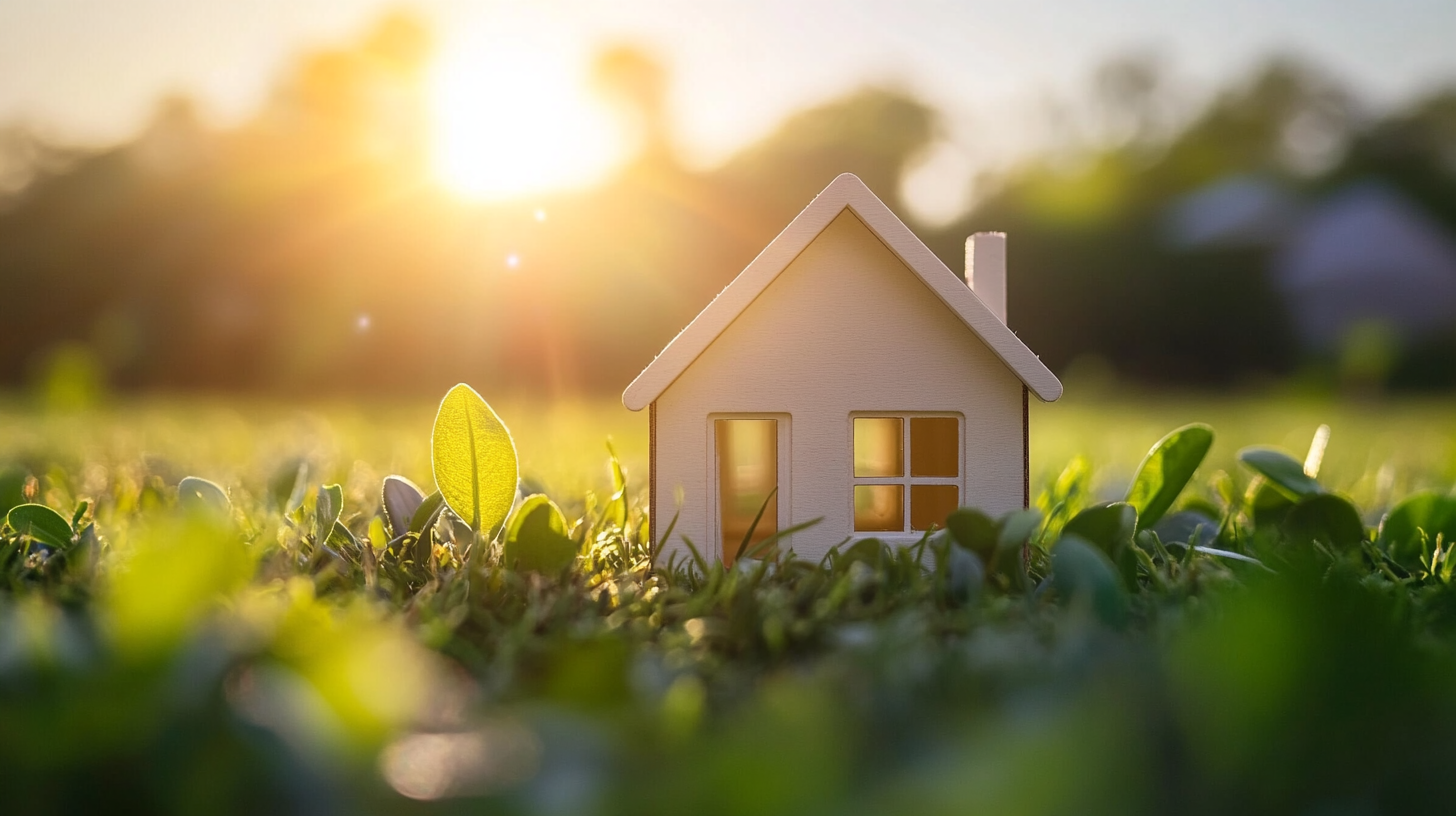
News
Understanding the Benefits of Modular Homes for Global Buyers
In recent years, the construction industry has witnessed a significant shift toward Modular Homes, a trend driven by their numerous advantages in efficiency, sustainability, and design flexibility. According to the Modular Home Builders Association, modular construction can reduce building time by up to 50% compared to traditional construction methods, offering a solution to the growing demand for housing in various global markets. As urbanization accelerates, with the UN reporting that 55% of the world's population now resides in urban areas, the appeal of Modular Homes is increasingly evident—providing faster, cost-effective housing solutions that meet the needs of modern communities.
Furthermore, the sustainability aspect of Modular Homes cannot be overlooked. A report by the National Association of Home Builders highlights that modular construction generates less waste, utilizes eco-friendly materials, and often incorporates energy-efficient designs that significantly lower the carbon footprint. As more global buyers seek environmentally responsible living solutions, the rise of Modular Homes presents a compelling opportunity to effectively address pressing housing challenges while embracing innovative building practices. This blog will explore the multifaceted benefits of Modular Homes, making them an attractive option for buyers around the world.

Advantages of Modular Homes: Cost-Effectiveness for Buyers Worldwide
Modular homes have garnered increasing attention from global buyers, particularly due to their cost-effectiveness. Unlike traditional homes that often come with high labor costs and prolonged construction times, modular homes are built in sections at a factory and then transported to the site for quick assembly. This streamlined process reduces overhead significantly, resulting in lower prices for buyers compared to conventional housing options. Moreover, modular construction minimizes waste and utilizes materials more efficiently, further enhancing its cost benefits. As builders consistently aim to optimize production methods, the economies of scale achieved in manufacturing allow for cost savings that are ultimately passed on to the consumer. For potential homeowners, this means more value for their investment, allowing them to allocate funds towards customization or upgrades without breaking the bank. Another significant advantage lies in the speed of construction. Modular homes are usually completed within a fraction of the time it takes to build a traditional home. This rapid assembly not only leads to quicker occupancy but also reduces financing costs for buyers. In a world where time is of the essence, the efficiency of modular homes offers a compelling alternative for those seeking affordable, high-quality housing. As international buyers continue to explore viable options in today's housing market, the appeal of modular homes shines bright, proving that functionality and affordability can go hand in hand.

Environmental Benefits: Sustainability in Modular Home Construction
Modular homes are increasingly recognized for their environmental benefits, making them an appealing choice for global buyers interested in sustainability. The construction process of modular homes significantly reduces waste compared to traditional building methods. By fabricating sections of the home in a controlled factory environment, builders can optimize material usage and minimize excess. This leads to less debris sent to landfills, aligning with eco-friendly practices and reducing the overall carbon footprint of home construction.
Additionally, modular homes often incorporate energy-efficient materials and technologies, further enhancing their sustainability. Many modular homes come equipped with features such as high-efficiency windows, proper insulation, and eco-friendly appliances, which contribute to lower energy consumption over the lifespan of the home. By focusing on energy efficiency, modular homes not only benefit the environment but also provide long-term savings for homeowners through reduced utility bills.
Moreover, the versatility of modular designs allows for the integration of sustainable building practices, such as rainwater harvesting systems or solar panel installations. This adaptability supports a more sustainable lifestyle for homeowners while promoting the use of renewable energy sources. As global buyers seek to make environmentally conscious choices, the modular home market provides an innovative solution that emphasizes sustainability without compromising on quality or aesthetics.

Customization Options: Tailoring Modular Homes to Personal Preferences
When it comes to purchasing a home, one of the most appealing aspects of modular homes is their extensive customization options. Unlike traditional homes, which often come with fixed designs and layouts, modular homes can be tailored to meet the unique preferences and lifestyles of individual buyers. This flexibility allows homeowners to select everything from the floor plan to the materials used, ensuring that their home truly reflects their personal taste and needs.
Homebuyers have the opportunity to customize various elements of their modular homes, including the size, layout, and aesthetic features. Whether you're looking for an open-concept living space, energy-efficient appliances, or specific finishes that match your style, modular home manufacturers are often able to accommodate these requests. This level of customization not only enhances the overall satisfaction with the home but also ensures that it serves the functional requirements of its inhabitants.
Moreover, the ability to customize modular homes promotes sustainability and efficiency. Buyers can incorporate eco-friendly materials and energy-saving technologies that align with their environmental values. This means that beyond personal preferences, homeowners can create a living space that minimizes their carbon footprint. Ultimately, with the myriad of customization options available, modular homes represent an innovative solution for global buyers seeking a perfect blend of style, functionality, and sustainability.

Speed of Construction: How Modular Homes Accelerate Housing Solutions
The world is facing a significant housing crisis, with shortages affecting both urban and rural areas. Modular homes have emerged as a compelling solution, particularly noted for their speed of construction. According to a report by the Modular Building Institute, modular homes can be completed in as little as half the time of traditional site-built houses. This rapid construction process significantly addresses the pressing need for more housing options, allowing developers and buyers alike to respond quickly to market demands.
One of the key factors contributing to the accelerated construction of modular homes is the off-site building process. As per a comprehensive study by McKinsey, projects that utilize modular construction techniques can reduce lead time by up to 30%. This efficiency is achieved through simultaneous site preparation and module construction, meaning that groundwork can be laid while the home is being built in a controlled factory environment. This not only shortens the overall time of development but also mitigates delays commonly caused by inclement weather or supply chain challenges.
Furthermore, modular homes can be customized and adapted to fit various needs and preferences without compromising speed. The flexibility in design also helps cater to diverse buyer demographics, which is crucial in today’s global market. The continued advancement in modular technology promises further reduction in construction time and costs. Industry forecasts suggest that as modular construction gains traction, we could see a substantial increase in its market share, demonstrating its potential to revolutionize the housing sector and satisfy the pressing global demand for homes.
Global Appeal: The Rising Popularity of Modular Homes Across Different Markets
The global appeal of modular homes is gaining momentum as buyers across various markets recognize the unique benefits they offer. With a growing demand for affordable, sustainable housing, modular homes provide a practical solution that aligns with contemporary lifestyles. In the United States alone, the modular home market is projected to continue expanding, driven by advancements in construction technology and a shift towards eco-friendly building practices.
Internationally, the trend toward modular housing is becoming increasingly apparent. For instance, the global container homes market was valued at approximately $61.83 billion in 2023, with expectations to grow to $108.70 billion by 2033. This surge reflects a broader acceptance of alternative housing structures, which are viewed not only as cost-effective solutions but also as environmentally responsible choices. As markets evolve, modular homes offer flexibility, quicker build times, and high energy efficiency, appealing to an eco-conscious generation looking for sustainable living options.
Moreover, factors such as urbanization and increased housing shortages are further propelling the popularity of modular homes. In cities around the world, where space is at a premium, the ability to efficiently use land and resources through modular construction can alleviate some of the pressures on housing. As global buyers embrace the benefits of modular homes, manufacturers and developers are presented with significant opportunities to innovate and cater to diverse consumer needs across different geographic markets.

